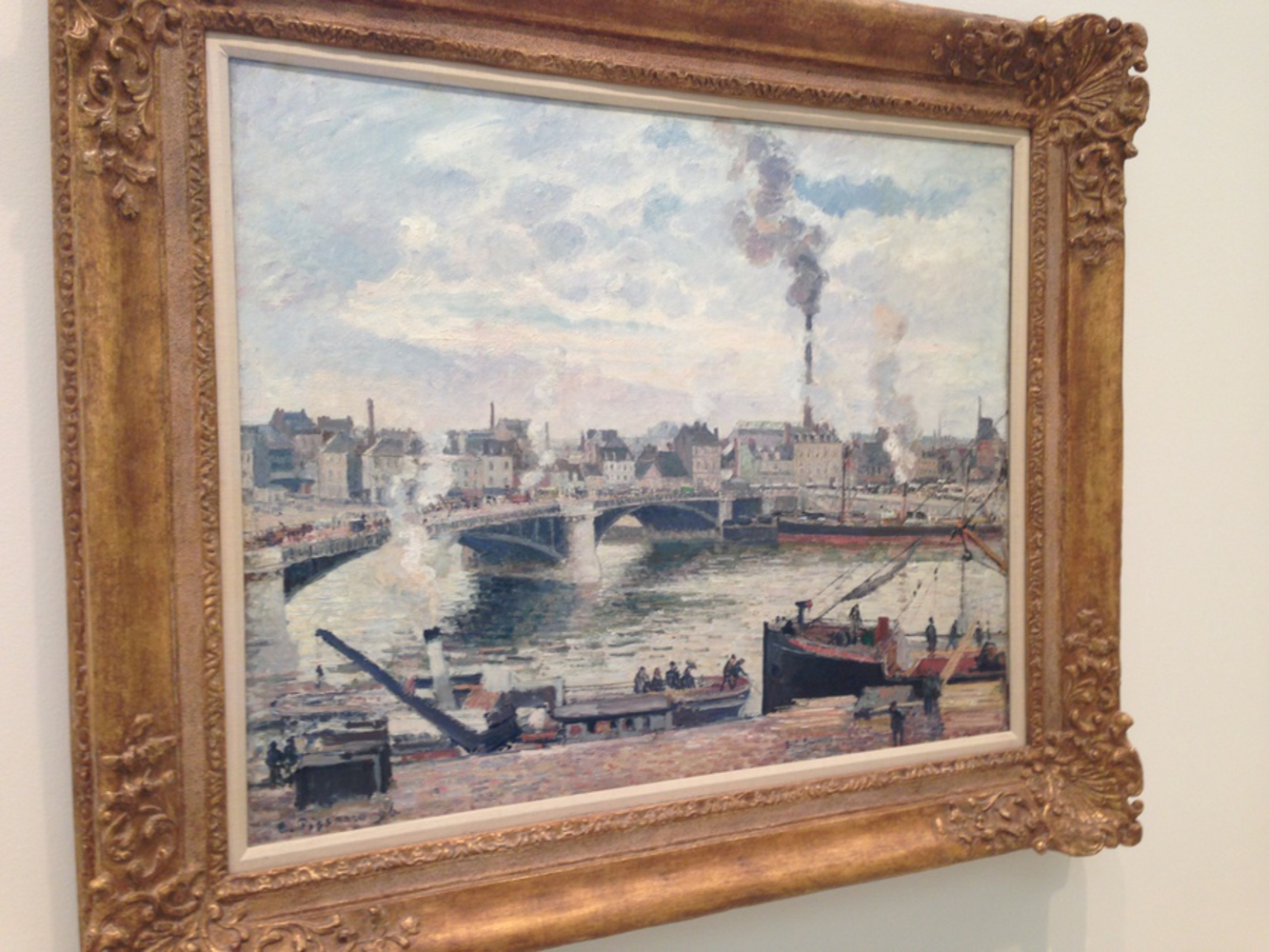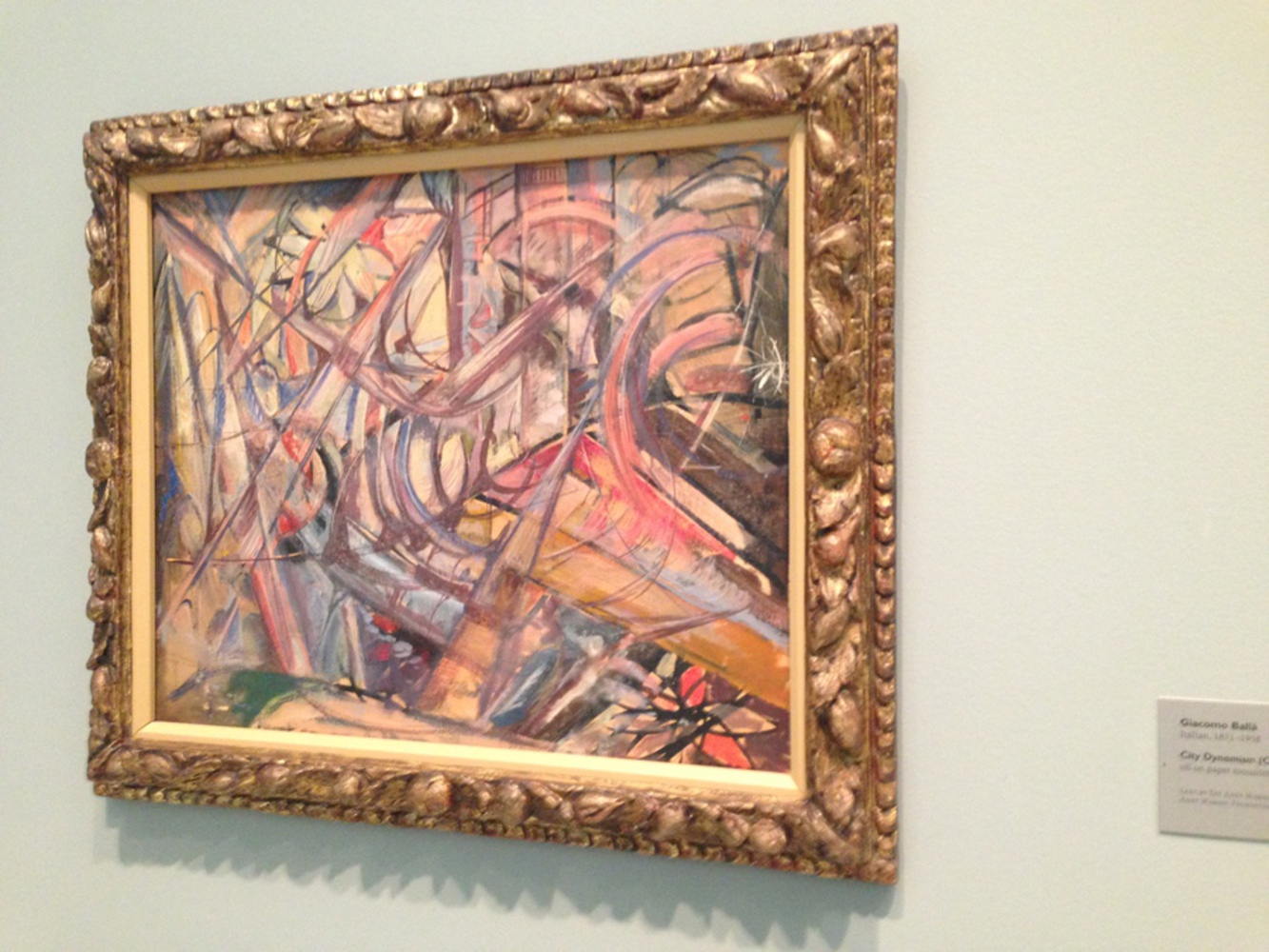The paintings I looked at this weekend is from Carnegie Museum of Art. I intentionally picked two paintings, one abstract one realistic on the theme of cityscape. Here they are.
Outcome
This is "The Great Bridge, Rouen" by Camille Pissarro, painted in September 1896. At first glance, I found this to be a really detailed scenery painting focusing on busy industries and social interaction. I really liked the detail on the perspective of buildings, which face in many different directions. After a while I was really drawn in by the painting of the people on the bridge as well. From afar, it looks like what you would expect, but at closer glance, the brush strokes are incredibly simple with some alternation in gestures, but it created such a lively scene that actually convinced me they were people. The closer I looked, the more flat it seemed to me, and I realize a lot of the parts were actually really not detailed, but as a whole created beautiful depth. As I dissolved more into the painting, I saw whats behind the smoke. There is actually a really impressive background with blue sky and a mountain range that its hidden behind the city. So ironically, after looking at the picture for a long time, I saw the lack of detail, but more composition and themes instead.
This painting, "City Dynamism" by Giacomo Ballia immediately caught my eyes in the abstract section for its beautiful composition. First I didn't really understand the painting at all, and had no idea what it had to do with cities as suggested in its name. I saw flowers and what seemed to be a river in the back. As I digested what was in front of me, I saw foliage, with each of the abstract "pointy" elements to be leaves, and an fern in the middle. Behind it was blocks, I presume buildings, with a river or road running through and turning perpendicularly. Then I saw what appeared to be handrails and a bridge around the top and a fallen log in the front. I believe what the painting is portraying is a foreground of nature, different types of plants and elements belonging to a forest. And this frames what seem to be the contrasting man-made city, with rigid shapes and patterns. So the longer I looked at it, I saw more depth, and meaning.
Looking at the two types of paintings, I noticed an interesting phenomenon. For realistic paintings, I get dragged into a the small details, that even though I had a glance at the composition, I didn't really understand it at first. So through time, as I was able to connect the finer points of the painting, I was able to see the bigger picture and understand what it is depicting more clearly. The abstract painting on the other hand, since I didn't know what was really going on at first, I was drawn to the composition, coloring, and proportions. And as opposed to the realistic painting where the closer I look, the more two dimension it seemed, the abstract painting showed more depth as you focus in. And so to understand the picture you had to focus on smaller elements.
You can upload files of up to 20MB using this form.

